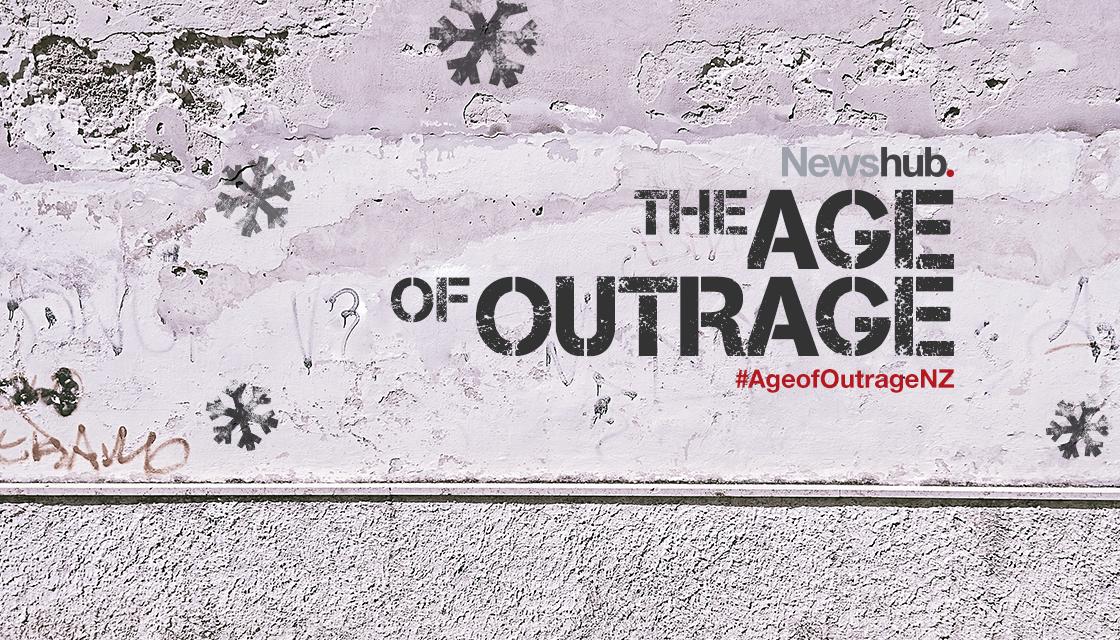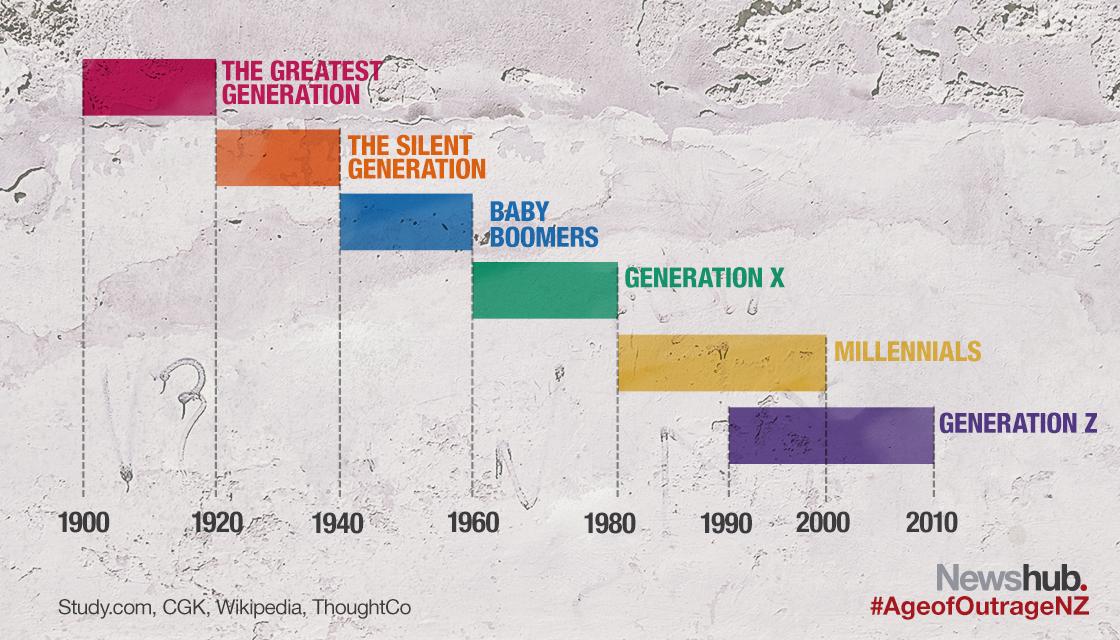The world is changing. What was acceptable only a few short years ago is now labelled offensive. Social media is full of outrage – from those who don't accept the status quo, and from those who won't accept change.
The Age of Outrage is a new series from Newshub exploring the changes taking place in society right now. Is it all PC gone mad? And who, exactly, are the snowflakes? Join the conversation - #AgeofOutrageNZ on Facebook, Twitter and Instagram.
It's time for millennials to reclaim the word 'snowflake' - a term that's come to define a generation often perceived as having an easy and fragile existence, an expert says.
Dr Sharyn Graham Davies, Associate Professor of Social Sciences and Public Policy at Auckland University of Technology, says terms used derogatively can be reclaimed and empowered in a socially progressive way.
"It's a really smart strategy of people to take terms like 'snowflake' and say, 'Yes, we can be very privileged and we are unique and we have developed in our own way, but we're going to use that as a way to fight for better social good'."
- Feminism's final frontier: The battle for transgender inclusion
- Term 'womxn' used by London students to promote inclusiveness
- Sean Plunket slams 'snowflake' youth consumed by 'self-entitlement'
Where did 'snowflake' come from?
Where the term originated is debated, with some saying it goes back to the 1860s, while most people today will recognise it as the alt right's favourite insult to flog at liberals, particularly in light of Brexit and the 2016 US presidential election.
Author Chuck Palahniuk told the Evening Standard in 2017 that he first used the term 'snowflake' as an insult in his 1996 book Fight Club, later made into the 1999 film starring Brad Pitt and Edward Norton.
Mr Palahniuk wrote in the book: "You are not a beautiful and unique snowflake. You are the same decaying organic matter as everyone, and we are all part of the same compost pile."
But online dictionary Merriam-Webster says the insult existed long before then, going back to the 1860s when a 'snowflake' was used to describe someone who opposed the abolition of slavery, and favoured white people.
The dictionary website explained how the word 'snowflake' has since developed a new use as a "disparaging term for a person who is seen as overly sensitive and fragile".
Wikipedia defines it as a term used to characterise the millennial generation as being "more prone to taking offence" and having "less psychological resilience".
Looking at how the term is used to describe millennials today, Prof Graham Davies says there are two ways it's been weaponised to insult the generation born between the 1980s and early 2000s.
"One of the ways is the idea that parents are so invested in their children that they raise them with such self-confidence and the notion that they are unique individuals and they can go and do anything they want," she explained.
"So just like a snowflake, they have their own individuality that no one can compete with them because they're quite singular and unique."
The other meaning, she added, is the "idea of a snowflake falling down and it quickly evaporates and melts, and so the meaning, in that interpretation of snowflake, is that millennials now don't have any grit, or guts, or courage".
She said there's a perception that millennials "just kind of cower in their bedrooms and watch social media and don't really have any face-to-face communication."

Reclaiming 'snowflake'
When asked if millennials have an inflated view of themselves and if we're living in an age where everything is too politically correct, Prof Graham Davies said, "I don't think so."
"For the vast majority of millennials, they have a great amount of courage and a great amount of compassion and passion, and we see that across the globe," she said.
"This is a youth group that is coming out and demanding rights and being active on social change - particularly young women such as Malala [Yousafzai] who are really standing up to the systems that they see as quite corrupt and not benefitting future generations."
She said it's time for millennials to reclaim 'snowflake': "Terms like queer, for instance, for a long time was a label that was used in a derogatory way, but the queer movement has now embraced that meaning and changed it as a way to empower that community."
Just as important, she said, is people learning about which terms are now considered inappropriate and which ones can now be used freely.
"It's really difficult," Prof Graham Davies admitted. "I work a lot with LGBT communities and one of the issues that is raised there is, what is the correct term? Is it queer, is it LGBT, or is it LGBTQ?
"The same can be done with 'snowflake' - it's about encouraging discussion and debate about what it means, what it's tapping into, and whether people can reclaim 'snowflake' in a way the way that queer has been reclaimed to make it empowering."
The most defining aspect of the millennial generation, she said, is social media, and how it has shaped the generation's communication by expanding its reach.
"People have always relied on some form of social media, be it just gossip and chatter or sticking up posters to trees to get a message across," she said.
"So the ways that people are communicating, it's not the essence that's changed, but the volume, and so now with social media we have a platform that is unprecedented in terms of the amount of information we can deliver.
"I think that's really helped galvanise the younger generation to be, in fact, not snowflakes, but rather to be really proactive in the things they're doing."
She pointed to 18-year-old Rahaf Mohammed al-Qunun from Saudi Arabia, who earlier this year, used social media to garner support after she escaped from the kingdom to seek asylum over fears for her safety.
The teenager was stopped in Thailand by authorities, so she barricaded herself in a hotel room and drew attention to her plight through social media posts, and was eventually offered asylum in Canada.
"It would have been impossible for her to achieve without social media," Prof Graham Davies said.
"I think rather than social media being responsible for millennials not being socially active, it actually enabled them to have a really strong voice to change our future for the good."

'The challenges don't get easier'
When asked if there's any truth to younger generations having it easier than generations before, Prof Graham Davies said it's a perception that's always been around.
In every generation there's a debate and a concern that the upcoming generation have got it so easy that they're not going to develop as worthwhile adults, she explained.
"But actually, in many ways, and a lot of the older generation recognise this as well, while millennials might have it easier in some ways, there's also a different landscape that they now have to navigate."
She explained how each generation tends to struggle through a social change. For example, the Baby Boomers (born in the 1940s-1960s) lived through the Vietnam War, and from that emerged an activist hippie culture opposed to it.
"For each generation, the challenges don't get easier or harder, they just become different challenges."
What's interesting now, Prof Graham Davies said, is how the Baby Boomer generation is looking at millennials more conservatively, when they once viewed the world in a similarly liberal way.
"I think what happens is, we just get comfortable in our position, and that kind of sticks with us as we get older."
What will be interesting, she pointed out, is to see whether millennials act the same way towards the generation that follows.
Newshub.

